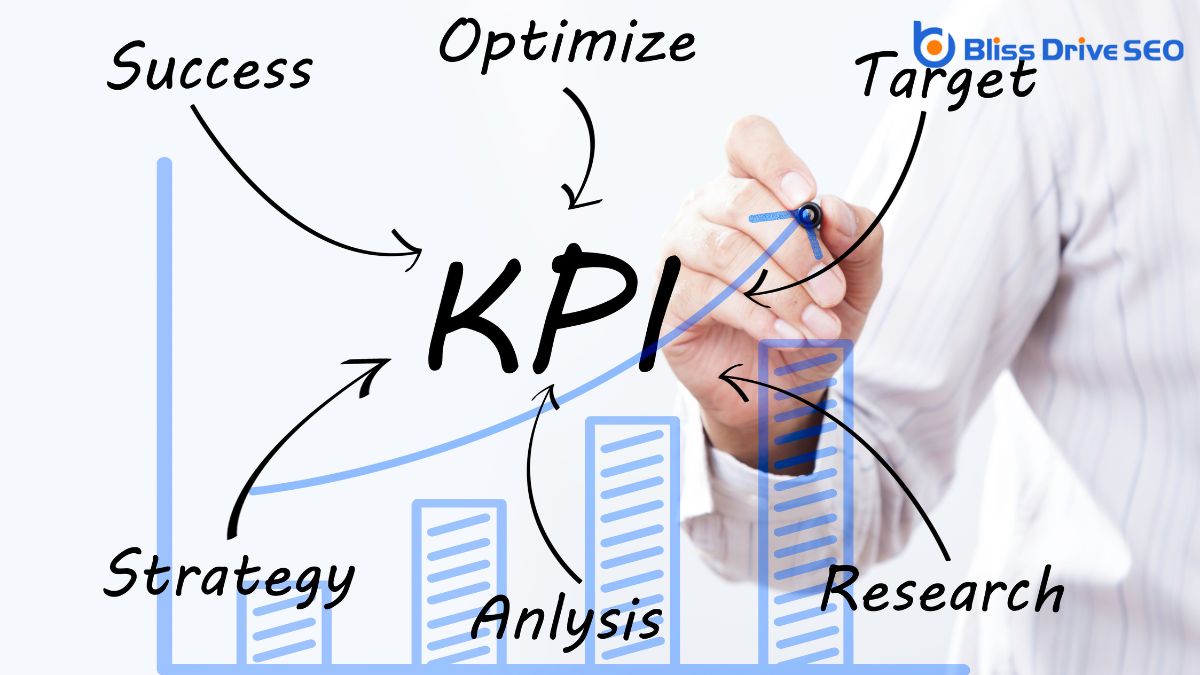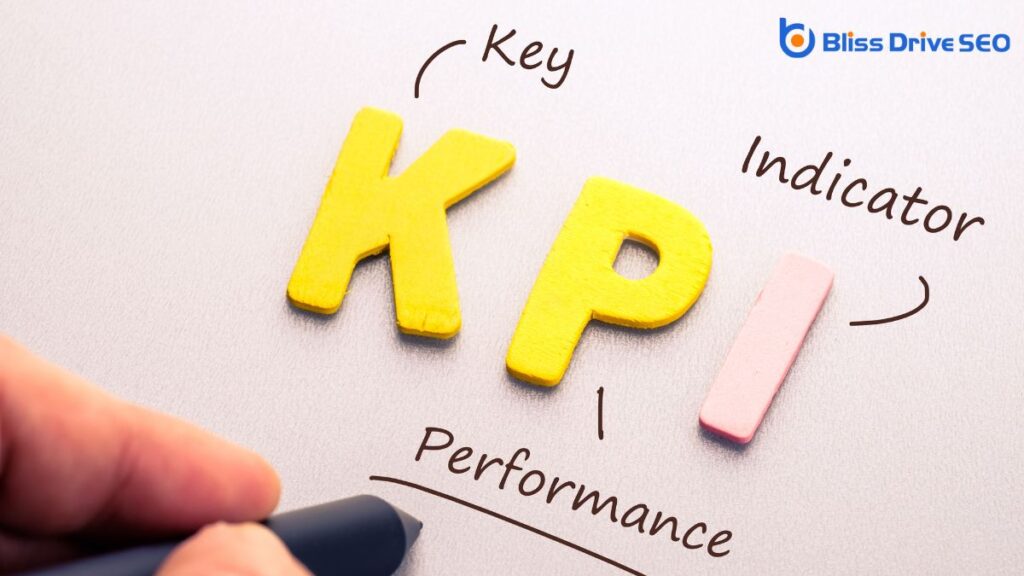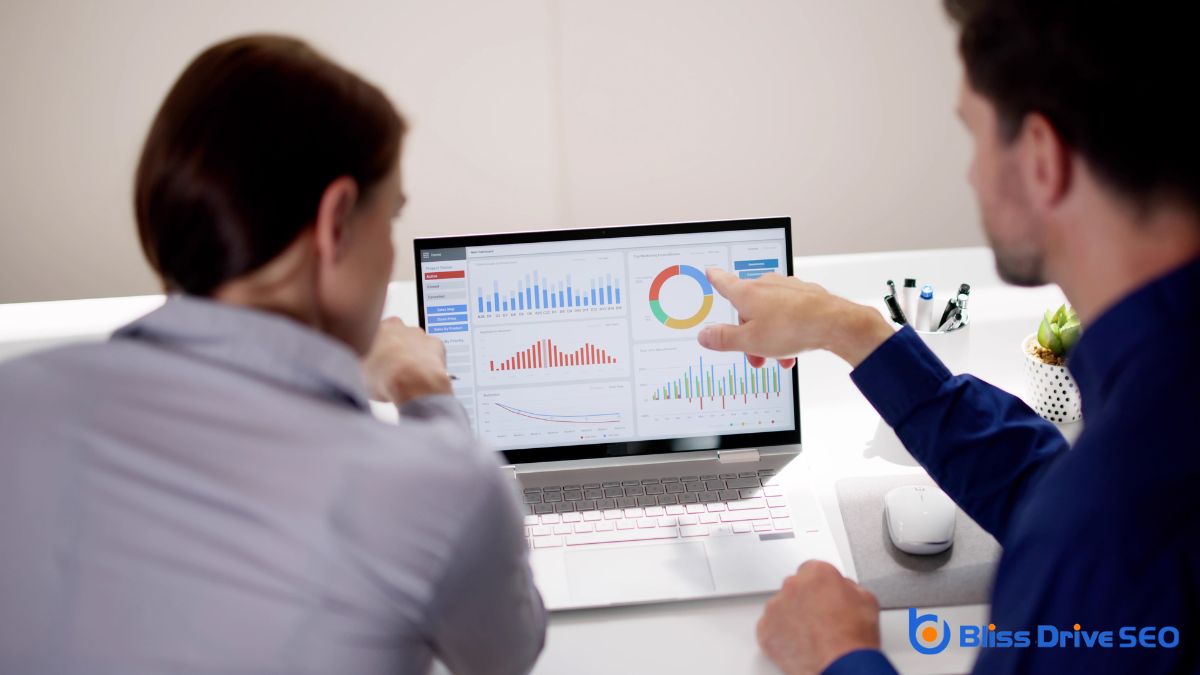Digital Marketing Services
Learn More About Us

Pay-per-click (PPC)An online advertising model where advertisers pay a fee each time their ad is clicked. isn't a KPI itself, but it provides essential data for evaluating other key performance indicators like click-through rate (CTR)The percentage of users who click on a specific link or CTA., conversion rateThe percentage of visitors who complete a desired action, such as making a purchase or filling out a..., and cost per click (CPC). These metrics help measure the effectiveness of your marketing campaigns and guide strategic decisions. Understanding PPC's role in tracking these KPIs will enhance your ability to manage advertising efforts. Reveal more insights into optimizing your strategies through the interplay of PPC and KPIs.

Key Performance Indicators, or KPIs, are essential metrics that help you assess the success of various aspects of your business. They provide a clear focus on your strategic and operational improvement needs.
By tracking KPIs, you can gain insights into how well your business is performing and where adjustments might be necessary.
You need to choose KPIs that align with your specific goals and objectives. For example, if you're aiming to increase online sales, a relevant KPI might be the conversion rate.
KPIs should be measurable, relevant, and time-bound, making it easier for you to monitor progress and make informed decisions.
You can think of Pay-Per-Click (PPC) advertising as a model where you pay a fee each time someone clicks your ad, often through search engines or social media platforms.
It's a straightforward way to buy visits to your site, and the benefits include targeted reach and measurable results.
Pay-per-click (PPC) advertising is a digital marketing strategy where advertisers pay a fee each time their ad is clicked.
It's a way to buy visits to your site rather than earning them organically. In PPC, you bid on keywordsWords or phrases that users type into search engines to find information. relevant to your business, and when users search these terms, your ad might appear.
Here's what you need to know:
Understanding these basics helps you set up effective PPC campaigns, driving targeted traffic to your website.
A significant advantage of PPC advertising is its ability to deliver immediate results and drive targeted traffic to your website. Once your campaignA set of ad groups sharing a budget, targeting options, and other settings. is live, you can see your ads appear and attract visitors straight away. This immediacy helps you reach potential customers precisely when they're searching for products or services like yours.
PPC also offers flexibility in budgeting and targeting, allowing you to control your spending and focus on specific demographics, locations, and devices. You can easily adjust your strategies based on performance data, optimizing for better outcomes.
Additionally, PPC provides measurable results, offering insights into clicks, impressions, and conversions. This transparency helps you understand what's working, enabling data-driven decisions to enhance your return on investment.
When exploring the intersection of PPC and KPIs, it's important to recognize how these two concepts work together to optimize marketing strategies.
You can use PPC campaigns to drive specific business goals by aligning them with key performance indicators (KPIs). This alignment guarantees your marketing efforts are targeted and measurable.
Understanding this relationship helps you make data-driven decisions that enhance campaign performance.
Here's how PPC and KPIs intersect:
To truly understand the effectiveness of your PPC campaigns, you need to explore reviewing PPC metrics.
Start by focusing on key metrics like click-through rate (CTR), cost per click (CPC), and conversion rate. CTR helps you gauge how enticing your ads are, while CPC reveals how much you're spending per click.
Conversion rate, on the other hand, shows how well your campaigns are turning clicks into meaningful actions. Analyzing these metrics allows you to pinpoint areas needing improvement and optimize your ads for better results.
Don't overlook the importance of quality scoreA metric used by Google Ads to measure the relevance and quality of keywords and ads., as it affects ad placement and costs. By regularly evaluating these metrics, you'll guarantee your PPC efforts are efficient and aligned with your advertising objectives.
While managing PPC campaigns, it's crucial to align them with your overall marketing goals to guarantee they're driving the desired outcomes.
Start by clearly defining what you want to achieve. Whether it's increasing brand awarenessThe extent to which consumers are familiar with the qualities or image of a particular brand. or boosting sales, your PPC efforts should reflect these objectives.
Consider the following to guarantee alignment:
Having aligned your PPC campaigns with your marketing goals, it's important to understand how they contribute to performance measurement. PPC plays a vital role in tracking the effectiveness of your marketing efforts.
By analyzing metrics like click-through rates, conversion rates, and cost per acquisition, you can gauge how well your ads are performing. This data helps you make informed decisions, optimize campaigns, and guarantee your marketing dollars are well spent.
You'll find PPC particularly useful in identifying trends and audience behavior. It allows you to adjust strategies quickly, responding to what works and what doesn't.
Using PPC as part of your performance measurement toolkit provides a real-time view of your campaign's impact, helping you achieve better results and improve overall marketing performance.
When you're evaluating PPC against other marketing KPIs, consider how it stacks up regarding ROI, conversion rates, and budget allocationThe process of distributing a budget across different campaigns and ad groups..
Ask yourself if the PPC campaigns are delivering a return that's comparable to other channels and if they're effectively converting clicks into customers.
It's also essential to see how PPC fits into your overall budget strategy and if the investment yields results that justify its cost.
Understanding the difference between Pay-Per-Click (PPC) and Return on Investment (ROI)A measure of the profitability of an investment, calculated by dividing the net profit by the cost o... is essential when evaluating marketing KPIs. While both are vital, they serve different purposes.
PPC measures the cost-effectiveness of your ad campaigns by tracking how much you spend for each click. ROI, on the other hand, evaluates the profitability of your investment, determining if you're getting more out than you put in.
To effectively compare PPC with other marketing KPIs, consider these key points:
Understanding these distinctions helps you make informed marketing decisions.
While both PPC and conversion rates are essential metrics in digital marketing, they measure different aspects of your campaign's effectiveness.
PPC focuses on how much you pay for each click on your ad, helping you gauge the cost-efficiency of driving traffic to your site.
On the other hand, conversion rates reveal how well your site or landing pageThe web page a user is directed to after clicking on an affiliate link, optimized for conversions. turns visitors into customers or leads, indicating the success of your content and user experience.
PPC and conversion rates both offerThe specific product or service being promoted by affiliates. valuable insights into your digital marketing strategies, yet they serve different purposes.
When planning your budget, comparing PPC to other marketing KPIs helps you allocate resources effectively. PPC focuses on driving immediate traffic, while conversion rates measure long-term success.
Here's how PPC stacks up:
Balancing PPC with other KPIs guarantees a thorough approach, optimizing both short-term gains and long-term growth.
To truly access the potential of your business, leverage the power of PPC data to drive growth. Use it to identify customer behavior patterns, optimize ad spendThe total amount of money spent on advertising campaigns., and improve targeting strategies. By analyzing PPC data, you can uncover which keywords are driving the most traffic and conversions, allowing you to refine your marketing efforts.
Here's a simple table to illustrate how PPC data can impact different business aspects:
| Aspect | PPC Insight | Growth Opportunity |
|---|---|---|
| Keywords | High conversion rates | Focus on effective keywords |
| Ad Performance | Click-through rates (CTR) | Enhance ad creatives |
| Audience | Demographic data | Tailor content to audience |
| Budget | Cost-per-click (CPC) | Optimize spending |
| Revenue | Return on Ad Spend (ROAS)A metric that measures the revenue generated for every dollar spent on advertising. | Increase profitability |
Harness this data to make informed decisions and propel your business forward.

Effectively integrating PPC into your KPI strategy requires a clear understanding of how these metrics align with your business goals.
Start by identifying which PPC metrics truly matter to your objectives. Click-through rates and conversion rates are common choices, but consider aligning them with broader business KPIs like revenue growth or customer acquisition costs.
To guarantee a seamless integration, focus on:
In your quest to optimize marketing efforts, remember that integrating Pay-Per-Click (PPC) into your KPI strategy is essential. By aligning PPC with your marketing goals, you can leverage its data to drive business growth. Compare PPC metrics to other KPIs to gain a thorough understanding of your performance. Always evaluate and adapt your strategies based on insights from PPC data, ensuring they contribute effectively to your overall marketing success. Embrace these best practices for impactful results.
